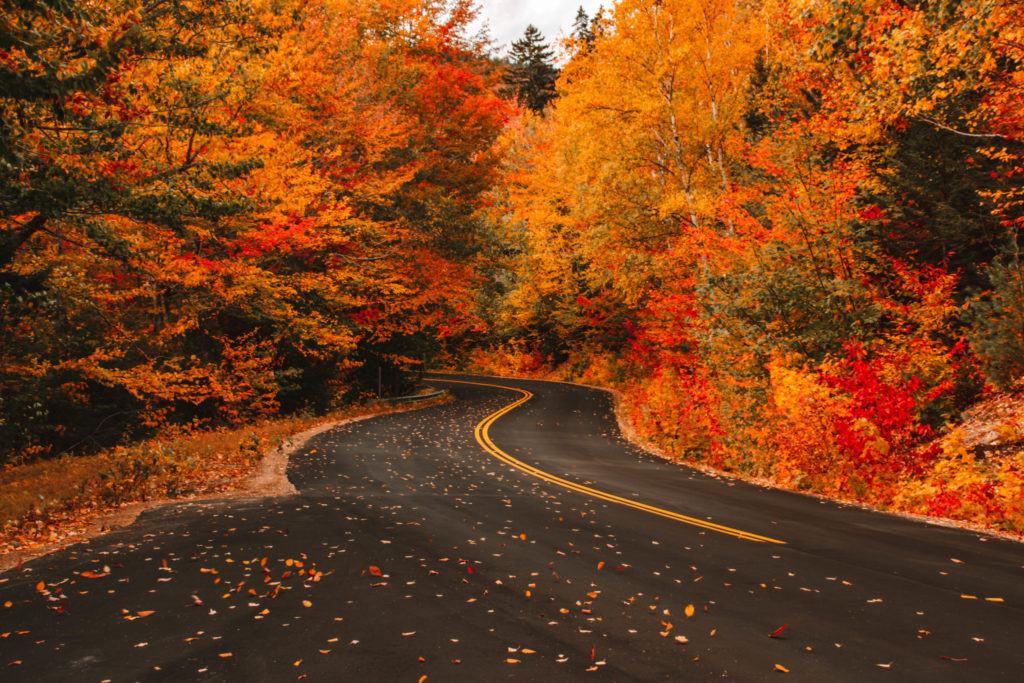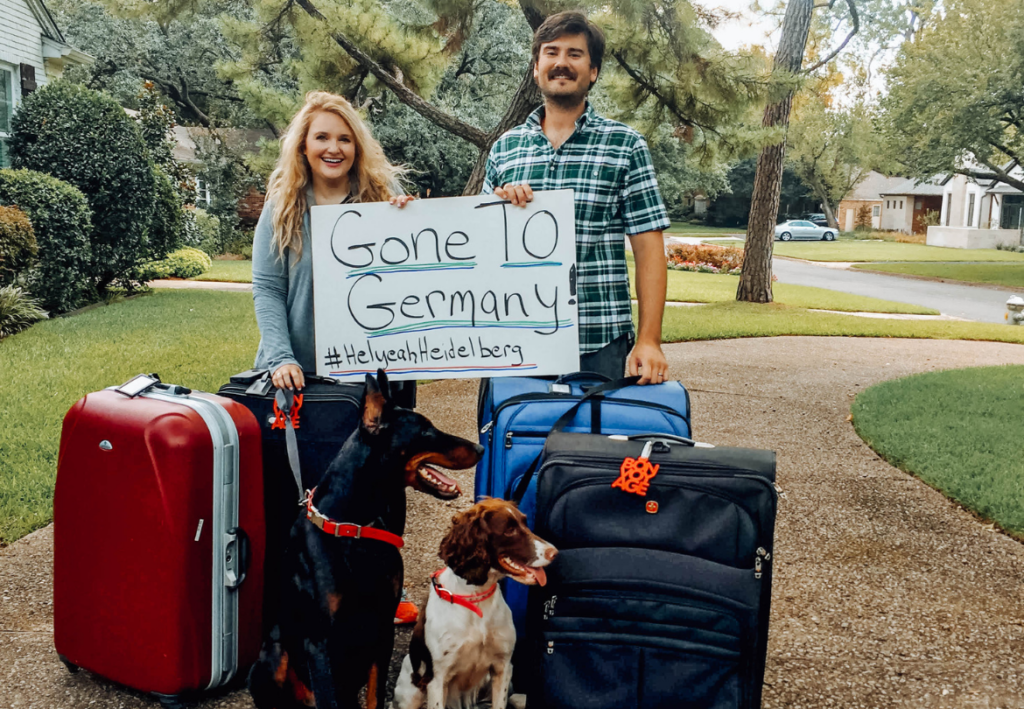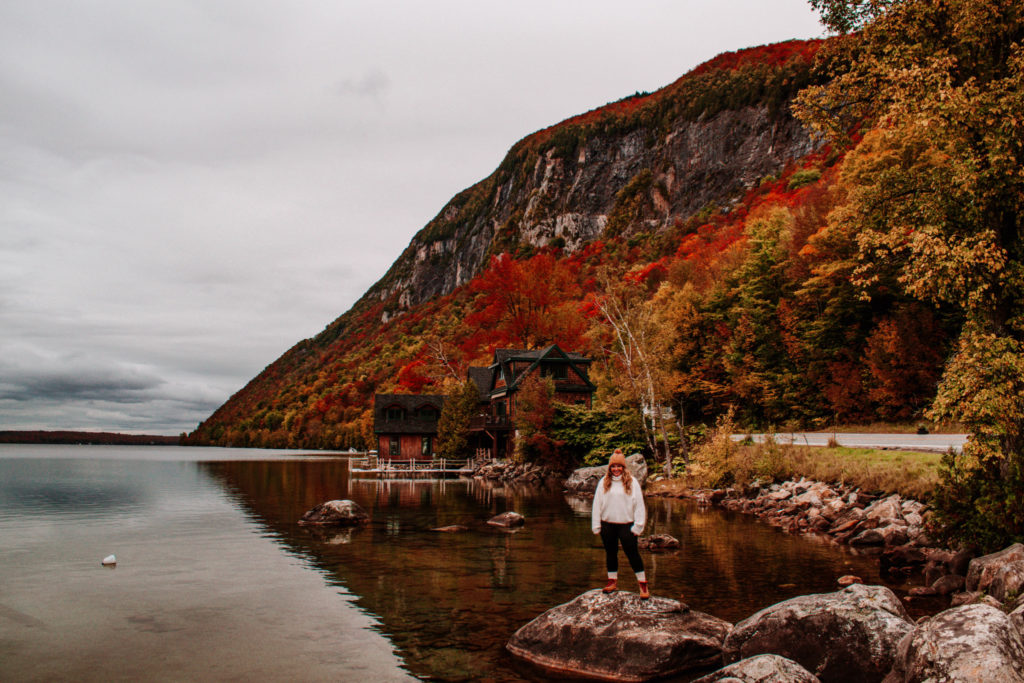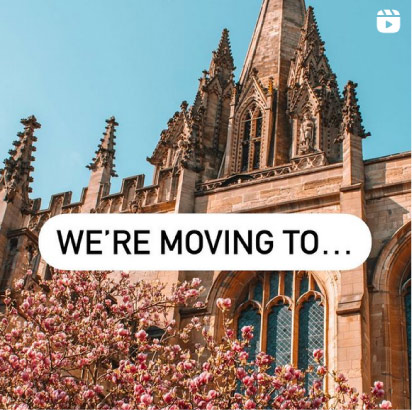Heading out in your RV is thrilling! The open road, the sense of adventure, and the freedom to camp where you want. Just as long as you have everything you need! I've created a checklist of RV camping necessities which includes everything you need whether you're boondocking (dry camping) or at an RV park.

This list will help save you stress and ensure you have the best trip. Included are the essentials for setting up your travel trailer or motor home, kitchen utensils, bathroom accessories, and even how we work from the road!
I had my husband Michael, the RV expert in our family, write a detailed guide to share what you TRULY need in your RV.
Everyone has a different travel style and list of what they feel they need to have with them on a trip, but from my perspective (like for most material things in life) less is more for an RV packing list. Beyond a minimalist’s take on packing there are simply weight and space limitations when traveling via RV whether from the tow vehicle or the RV’s weight bearing or store space. Even for those with particularly large RVs, a lighter set up is still safer (stops shorter and maneuvers better in an emergency) and cheaper (it takes less fuel to move a lighter load) than a heavy one.
All that being said, don’t feel for a minute like you’ll be missing out on many creature comforts while one the road. Just think how much more space and amenities you can take with you compared to your carry on or checked bag.
Traveling via RV really means you take your home on the road, and it’s a totally unique and enjoyable way to travel. I’ll be breaking this list down into different categories to keep it organized. We’ll start with accessories you’ll need related to RVing, items needed to make your RV a functional home on wheels, tow vehicle accessories, and finally for those who need to get a little work done on the road, RV office supplies.
Ultimate RV Packing List
My husband Michael really likes to research. It comes in handy especially when it comes to feeling safe and knowing we have everything we need for a great trip.
RV Accessories
You should purchase a few items along with your RV to make traveling in your new home more practical and enjoyable. Think of these as tools you need to make your RV tasks easier.
Leveling blocks – these oversized legos serve many purposes and will be one of your most used accessory items. We predominantly use these as a hitch chock in order to save time by not having to run the tongue jack all the way to the ground every time we hook up and unhook the trailer from our Jeep. We also use them under our stabilizing jacks to provide a bigger footprint on soft surface conditions. This keeps the stabilizing jack from pushing into the mud/sand and makes them more effective.
Of course they’re called leveling blocks because many people use them under their trailer tires to help level the trailer side to side. You simply stack as many as you need and drive up on them. Being level side to side is important not only for comfort but for the operation of the refrigerator. We prefer the style that comes with a screw in handle for storage rather than the kind with a storage bag.

Leveling ramps – while we love our leveling blocks for the reasons listed above we actually use leveling ramps when we need to level our trailer side to side. It takes the guesswork out of how many blocks you need to stack since you simply pull up on the ramps as high as you need to go to level the RV. We prefer the Camco brand because apparently the Anderser brand can be too long for double axle trailers. They’re cheaper to boot.
One modification I did make was to drill a hole in the ramp and tie a short loop of heavy rope through the ramp. Sometimes on slick surfaces the ramp would want to scoot in front of the tire instead of allowing the tire to roll up the ramp. When you roll over the rope first it forces the ramp to stay in place. I do wish the ramps were slightly taller because in some of our more adventurous boondocking campsites (camping on untouched public land rather than designed RV parks) we still struggle to get level.
Small folding shovel – this is my solution to the last problem mentioned above of not gaining enough height via the ramps to level the RV. With a minute or so of digging I can create a lower spot for one side of the RV to help level it. Shovels can also be used to bury and extinguish campfires or to dig out tires buried in sand.
Small level – after all this talk about getting level, how do you actually know? Bring a small level with you and check.
Gloves – the hitch components tend to accumulate a bit of road grime so having a pair of work gloves is a nice way to prevent having to wash your hands every time you hitch or unhitch.
Wheel chocks – these are utilized as a safety measure to keep the RV from rolling down a hill. While you want to use common sense when parking your RV you might not always be able to find a spot that’s level front to back. You place the triangle shaped wedges under the tires on the downside of the hill to prevent the trailer from rolling. We actually prefer a style of chock known as the X-chock which lock between the tires on a double axle trailer because they also provide a bit of stabilizing effect for when you’re moving around inside the RV.

Locks – You certainly want to protect your investment and a smart way to do that is by utilizing a variety of locks. We have two locks on our trailer tongue. One is a ball style that is shaped like the hitch ball of your tow vehicle and the other is a coupling pin padlock that prevents the tongue pin from being opened. We also have a receiver lock to lock our valuable weight distribution hitch to our tow vehicle. I bought all three of these locks from the same supplier on Amazon and had them keyed to the same key for convenience.
Dump supplies – one of the wonderful aspects of RV life is that you can enjoy all of the convenience of home while immersed in nature. That also means that we have to responsibly dispose of our waste once our trip is over. We have one medium sized plastic container where we keep all of our RV dump supplies. This includes a quality hose, hose support which helps streamline the flow, tank flush hose (you don't want to use the same hose you'll use for drinking water), disposable rubber gloves, and cleaning spray.
Make Your RV Feel Like Home
One of the decisions you’ll have to make when outfitting your RV with day to day items is whether you want to purchase duplicates from what you already have at home, or to pack and unload what you need from your home every time. For ease we decided to purchase duplicates of most things.
Considering we’re mindful of RV weight and cost, a lot of our supplies are lightweight, affordable reusable plastics. Even though we RV roughly 50% of the time everything has held up well.
We’ll organize this part of the packing list to corresponding rooms in your house. I encourage you to walk through your home and go through drawers and closets to help you think of the things you like to use on a regular basis. I won’t be listing things you’d bring on every ordinary hotel type trip (toothbrush, deodorant, etc.), but instead focus on the extra things you’ll need since you won’t be in a hotel. I’ll mention some camping supplies, but a good way to brainstorm for RV travel is to imagine you’re tent camping.

Bedroom
- Sheets
- Pillows, and pillow cases
- Blankets – how much warmth you’ll need can vary by season or destination
- Dog beds (and sometimes blankets for the dogs)
- Battery fan – If you don't want to run your ac but you want to cool down, this is a great alternative!
Bathroom
- Towels
- Soap, shampoo, and washcloth
- RV specific toilet paper
- Dump tank treatment pods
- Hand soap
- Toilet bowl brush
- Trash can

Kitchen
This is where you’ll need most of your supplies! We find it works best to have duplicates, instead of taking all your kitchen utensils out of your pantry every time you travel.
- Pot and pan
- Cooking utensils
- Mixing bowls
- Plates, bowls, cups
- Silverware
- Paper towels
- Pantry staples – we like to keep some dry goods and canned foods for quick easy meals. Also think of things like spices, cooking spray, etc. We also bring:
- Olive Oil
- Cooking Spray
- Salt, pepper, cinnamon
- Sugar
- Flour
- Ramen (a great, quick meal on the go)
- Bread
- Peanut butter
- Soups
- Groceries – you’ll have a fridge and freezer so there’s no reason to not be able to eat just like at home. In the fridge we also keep:
- Condiments: mayo, ketchup, mustard
- Yogurt
- Eggs
- Fruit
- Milk
- Butter
- Sandwich meat
- Frozen Chicken, Beef, or Sausage (we always have this on hand to defrost for a quick meal)
- Dish soap, scrubber, drying rack
- Trash bags
- Kitchen towel
- Baking sheet
- Cleaning supplies – for a shorter trip it’s easier to clean once you’re home, but a broom and dustpan or small vacuum cleaner is a must
- Coffee supplies
- Knives and cutting board
- Can opener
- Cling wrap and aluminum foil
- Storage containers
- Ziploc bags
- Measuring cups and spoons
- Scissors
- Ice cream scoop
- Metal spatula or tongs for grilling
Garage – I tend to keep my general camping supplies here and you may want to bring some of these as well since you’ll be spending a lot of time outdoors
- Folding chairs
- Headlamp, spotlight
- Charcoal, chimney, starter fluid, lighter
- Fly swatter
- Bike rack, bikes and helmets
- Compressor for bike tires, trailer tires, tow vehicle if you like to off-road
- Hunting and fishing gear
Tow Vehicle

These are the things we bring in our car and it helps to keep us in check!
- Battery jump starter – you never know when you might accidentally kill your car battery and if you’re in the middle of nowhere jumper cables aren’t going to help you. Make sure to maintain the charge in the battery over time according the owner’s manual
- Backup camera display – hopefully your RV comes equipped with a backup camera otherwise I would strongly recommend one. You can have it turned on all the time which is wonderful for changing lanes and general spatial awareness
- Tire pressure monitor – another safety feature I would recommend. You definitely don’t want to deal with a blow out from an under or over inflated tire.
- Towing mirrors – unless you have a heavy duty truck you’ll likely need to invest in a good pair of towing mirrors. You’ll be able to see much more of your surroundings for changing lanes, backing up, or pulling into tight spaces. *Helene's note: Michael spent MONTHS researching these mirrors (and many of the other products listed!) These are really durable!
Working From the Road
Of course you’ll need your laptop and charger, but here are some other additional supplies you can bring since you have the space that make work so much more efficient

- Second monitor – we bring ours from home, but they do make travel monitors
- Full size keyboard and mouse – much more useful when working off two monitors. We upgraded to wireless for both and leave those in the RV so we’ll never be without them.
- Folding desk – most RVs will have one table which is the kitchen table, but I prefer not to sit directly across from someone and rather have my own little bubble
- Cell booster – you’ll likely enjoy some remote environments while camping, but that doesn’t mean you can’t still work to full capacity. This is pricey but has been our biggest life saver for getting service on the road!
- Extra gear – depending on your line of work you likely have to pick and choose certain equipment to pack when you’re limited to a carry on or checked bag. With RVing you have the space so you can bring more. For us that means bringing all of our lenses, tripods, etc. for photos and videos.
Fun Stuff
We also pack things we can use on the road and outdoors for fun.
- Frisbee
- Board games
- Books
- Playing Cards
- Headphones
- Notepad/Journal
Choosing the right RV goes a long way to determining your ability to pack for an enjoyable trip. Our Flagstaff Super Light has many features that allow us to make the most of our journeys. Specifically related to packing, Flagstaff has the best floor plan on the market for our needs that combines living space, office space, large windows, and storage space.
Helene and I can comfortably live and work from the road for many weeks at a time. There is ample storage space in every “room” of the trailer, and there are two seating areas so that we’re not crammed around one kitchen table with our computers and monitors. I actually have enough storage space to pack my own folding office desk. Flagstaff’s come equipped with a more advanced, stronger and more comfortable rubber torsion suspension allowing us to carry more weight safely.
Almost every storage space is accessible while the slides are closed which is important for those quick stops between campgrounds when you need to grab something. We couldn’t have chosen a better manufacturer to RV in.
I hope this list helps you pack for your first RV adventure. Again, RVing is like a combination of normal hotel travel, camping, and all the creature comforts of home so think through those different types of travel and experiences when packing your RV. Maintain a list of things to bring next time and things not to bring on your next trip.
You’ll get everything dialed in after just a few outings. Also, after your first 6 months or so of travel make a thorough sweep through the RV and really think about things you could eliminate. This will help keep your weight down and make travel safer and more economical.
















